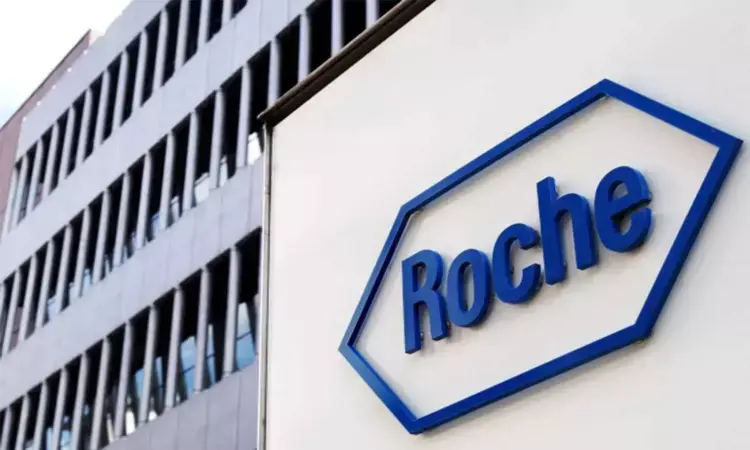- Home
- Medical news & Guidelines
- Anesthesiology
- Cardiology and CTVS
- Critical Care
- Dentistry
- Dermatology
- Diabetes and Endocrinology
- ENT
- Gastroenterology
- Medicine
- Nephrology
- Neurology
- Obstretics-Gynaecology
- Oncology
- Ophthalmology
- Orthopaedics
- Pediatrics-Neonatology
- Psychiatry
- Pulmonology
- Radiology
- Surgery
- Urology
- Laboratory Medicine
- Diet
- Nursing
- Paramedical
- Physiotherapy
- Health news
- Fact Check
- Bone Health Fact Check
- Brain Health Fact Check
- Cancer Related Fact Check
- Child Care Fact Check
- Dental and oral health fact check
- Diabetes and metabolic health fact check
- Diet and Nutrition Fact Check
- Eye and ENT Care Fact Check
- Fitness fact check
- Gut health fact check
- Heart health fact check
- Kidney health fact check
- Medical education fact check
- Men's health fact check
- Respiratory fact check
- Skin and hair care fact check
- Vaccine and Immunization fact check
- Women's health fact check
- AYUSH
- State News
- Andaman and Nicobar Islands
- Andhra Pradesh
- Arunachal Pradesh
- Assam
- Bihar
- Chandigarh
- Chattisgarh
- Dadra and Nagar Haveli
- Daman and Diu
- Delhi
- Goa
- Gujarat
- Haryana
- Himachal Pradesh
- Jammu & Kashmir
- Jharkhand
- Karnataka
- Kerala
- Ladakh
- Lakshadweep
- Madhya Pradesh
- Maharashtra
- Manipur
- Meghalaya
- Mizoram
- Nagaland
- Odisha
- Puducherry
- Punjab
- Rajasthan
- Sikkim
- Tamil Nadu
- Telangana
- Tripura
- Uttar Pradesh
- Uttrakhand
- West Bengal
- Medical Education
- Industry
Roche gets USFDA priority review for Glofitamab to treat relapsed or refractory large B-cell lymphoma

Glofitamab is an investigational CD20xCD3 T-cell-engaging bispecific antibody designed to target CD3 on the surface of T-cells and CD20 on the surface of B-cells.
Basel: Roche has announced that the U.S. Food and Drug Administration (FDA) has accepted the company’s Biologics License Application (BLA) and granted priority review for glofitamab, an investigational CD20xCD3 T-cell engaging bispecific antibody, for the treatment of adult patients with relapsed or refractory (R/R) large B-cell lymphoma (LBCL) after two or more lines of systemic therapy.
LBCL is an aggressive (fast-growing) type of non-Hodgkin lymphoma (NHL) and is one of the most prevalent types of blood cancer among adults in the U.S. The FDA is expected to make a decision on approval of this novel cancer immunotherapy by 1 July 2023. If approved, glofitamab would be the first fixed-duration, off-the-shelf CD20xCD3 T-cell engaging bispecific antibody available to treat people with an aggressive lymphoma who have previously received multiple courses of treatment.
“Unfortunately, people with relapsed or refractory large B-cell lymphoma have a poor prognosis and desperately need additional therapies that are immediately available at the time of relapse,” said Levi Garraway, M.D., Ph.D., Roche’s Chief Medical Officer and Head of Global Product Development. “Even for patients whose cancer is rapidly progressing, glofitamab given for a fixed duration has shown impressive efficacy and long-term durability, with patients continuing to experience a complete remission after treatment has concluded.”
The BLA is based on positive data from the pivotal phase I/II NP30179 study, which included patients who had previously received multiple courses of therapy, with 85.1% of patients refractory to their most recent therapy and about one-third (33.1%) having received prior CAR T-cell therapy. Results showed that 40.0% of patients (n=62/155) achieved a complete response (CR; a disappearance of all signs of cancer), and 51.6% (n=80/155) achieved an objective response (OR; the combination of CR and partial response, a decrease in the amount of cancer in their body). The median follow-up time was 13.4 months. Among those who achieved a CR, 73.1% continued to experience a response at 12 months, while the median duration of CR was not reached. The median duration of response was 18.4 months.
An earlier cut-off of data from the phase I/II study showed that glofitamab given as a fixed-duration treatment resulted in early and durable complete remissions. In this analysis, presented at the 64th American Society of Hematology 2022 Annual Meeting and simultaneously published in the New England Journal of Medicine in December 2022, most patients who had achieved a CR at the end of treatment experienced durable responses. The median CR follow-up from the end of treatment was 11.5 months (95% confidence interval [CI]: 10.5-16.4). Twelve months after the end of treatment with glofitamab, 61% of patients (n=37/61) maintained a CR, 92.6% remained progression-free and only one patient (n=1/44) experienced disease progression.
The FDA will review the glofitamab BLA under the granted Fast Track Designation. Data from the phase I/II NP30179 study of glofitamab were submitted for review to the European Medicines Agency, and submissions to additional health authorities worldwide are ongoing.
Roche’s portfolio also includes Lunsumio (mosunetuzumab), which was granted accelerated approval by the FDA, and conditional marketing authorisation by the European Commission for the treatment of adults with R/R follicular lymphoma who have received at least two prior systemic therapies.
Read also: Roche bags USFDA approval for Lunsumio to treat follicular lymphoma
Ruchika Sharma joined Medical Dialogue as an Correspondent for the Business Section in 2019. She covers all the updates in the Pharmaceutical field, Policy, Insurance, Business Healthcare, Medical News, Health News, Pharma News, Healthcare and Investment. She has completed her B.Com from Delhi University and then pursued postgraduation in M.Com. She can be contacted at editorial@medicaldialogues.in Contact no. 011-43720751


